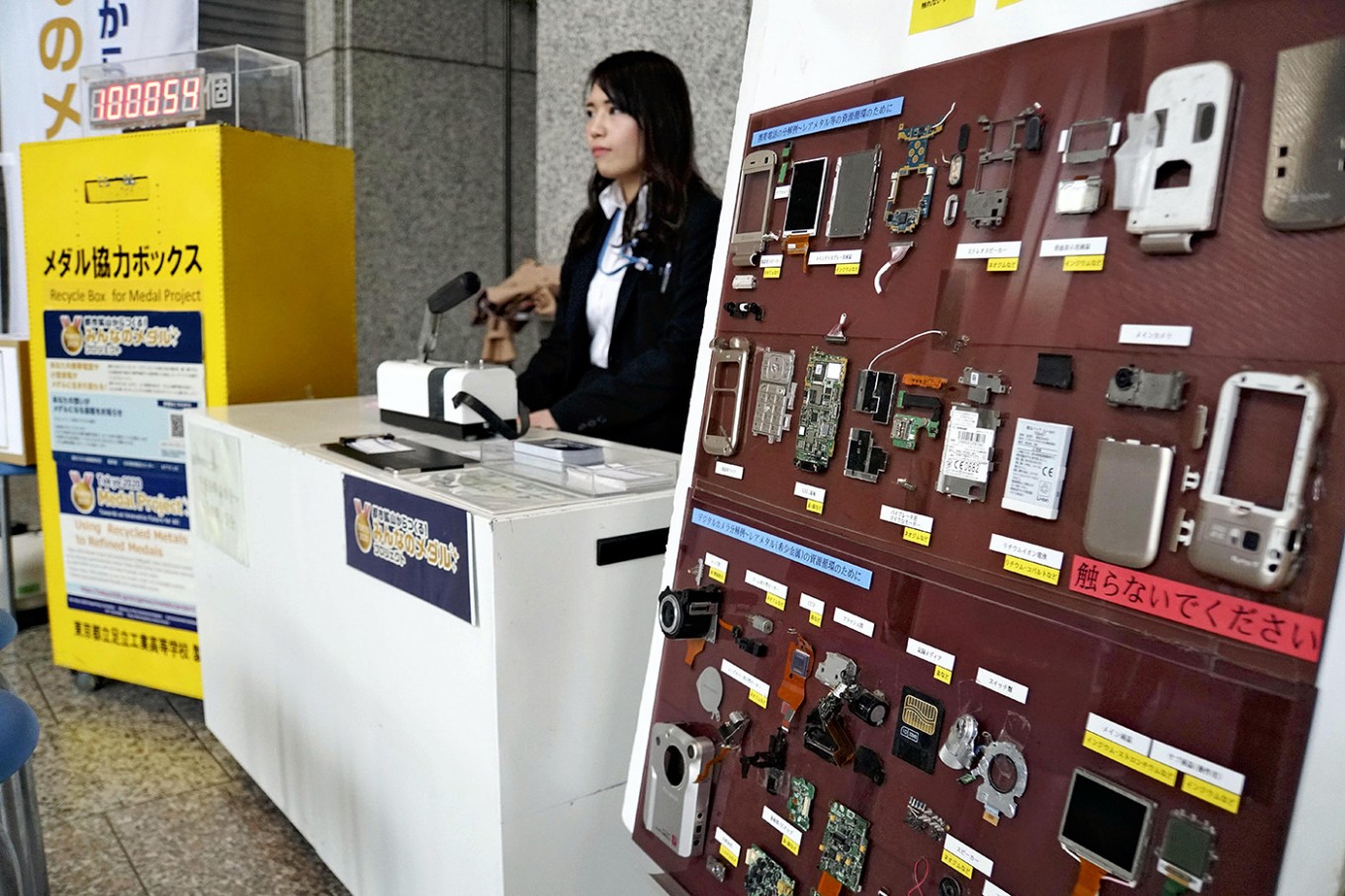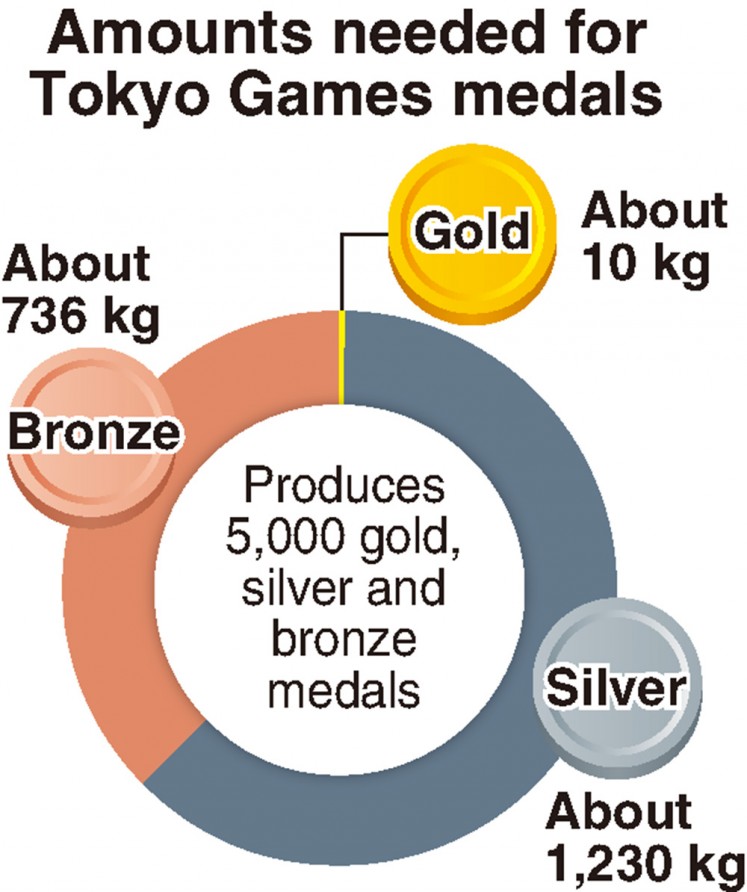Popular Reads
Top Results
Can't find what you're looking for?
View all search resultsPopular Reads
Top Results
Can't find what you're looking for?
View all search resultsRecycling efforts for Olympic medals far from finish line
The 2020 Tokyo Olympics and Paralympics organizers is trying to solve on a possible shortage of silver for the medals.
Change text size
Gift Premium Articles
to Anyone
A
mid efforts to use only recycled metals in the medals for the 2020 Tokyo Olympics and Paralympics, there is growing concern over a shortage of silver.
Half the necessary bronze has been collected in the year since collection began, but nearly twice as much silver is needed. If the situation remains unchanged, organizers likely will face a shortage.
With collection scheduled to end one year from now, the Tokyo Organizing Committee of the Olympic and Paralympic Games will accelerate its efforts by newly installing collection points at universities and post offices across the country.
Recycled metals were used to produce medals for the 2012 London Games and the 2016 Rio de Janeiro Games, while for the 2020 Tokyo Games, a plan is under way to use only metals recovered from small electronic devices such as old smartphones. It is the first such attempt in Olympic history.
Small electronic devices are also called “urban mines.” For example, a laptop computer contains about 0.3 grams of gold, about 0.84 grams of silver and about 81.6 grams of bronze. Japan is said to be one of the world’s leading countries in terms of the amount of precious metals contained in small electronic devices.
According to the organizing committee, there will be an equal number of gold, silver and bronze medals for the Tokyo Olympics and Paralympics. A total of at least 5,000 medals are required.
Silver and bronze medals are made almost entirely from pure silver and bronze. But under International Olympic Committee rules, a gold medal should be made by using silver as a base material with at least six grams of pure gold plated onto it.
About 10 kilograms of gold and about 736 kilograms of bronze are needed for the Tokyo Games. About 1,230 kilograms of silver, nearly double the amount of bronze, is estimated to be needed.
Since April last year, the organizing committee, the Environment Ministry, the Tokyo metropolitan government and others have been collecting small electronic devices such as old smartphones and personal computers.
As of March this year, at the halfway point to the collection deadline, half the necessary bronze had been collected. Since gold and silver are still being refined, the specific amounts that have been collected are unknown.
The metals needed to produce gold, silver and bronze medals at the 2020 Tokyo Olympics. (The Japan News/File photo):
However, “Given the collection pace of bronze, we are significantly short of silver, which we need twice as much of as bronze,” an official of the organizing committee said.
Collection boxes for smartphones and small electronic devices are installed at outlets of NTT Docomo Inc., which is participating in the project, across the nation. There are also boxes in municipal government buildings, mainly in Tokyo.
At NTT Docomo outlets, it is estimated that a total of 3.2 million smartphones have been collected over the past year, surpassing the annual average of 3 million until the previous year.
The number of municipal governments with collection points increased from 624 at the beginning of the collection to 1,404 in March this year. The project has spread nationwide.
However, at the current pace, the organizers likely will run short of silver. Therefore, the organizing committee newly installed collection boxes at 3,000 locations across the nation, mainly such as post offices, from late March this year.
From here on, they plan to install more collection points and strengthen promotional activities in cooperation with universities and department stores, aiming to accelerate the pace of collection over the remaining year.
“Just like the recycling of plastic bottles and empty cans, we aim to achieve a society where the separate collection of electronic devices is natural,” an official of the organizing committee said. “To take advantage of the Tokyo Games to achieve this, we want to call for many people to cooperate with us.”
This article appeared on The Japan News newspaper website, which is a member of Asia News Network and a media partner of The Jakarta Post











